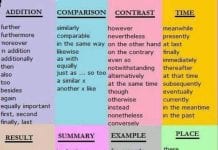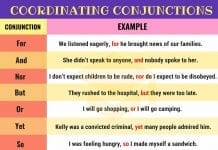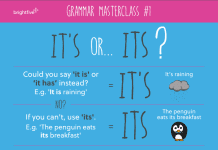There are multiple ways to express emotions. One of them is to use interjections. Interjections help you to make your speech more emotional.
What Are Interjections?
Uhm… to use what? Ok, let’s start with defining what exactly these magic words are.
The meaning of the word “interjection” is defined as “an abrupt remark, especially as an aside or interruption” by Oxford Dictionary. And as “an ejaculatory utterance usually lacking grammatical connection” by Merriam-Webster. Blah blah blah.
To put it simply, interjections are one or two words that are used to express emotions while having no grammatical meaning in a sentence.
How to Use Interjections?
Indeed, interjections convey no grammatical meaning. Therefore, you can use them anywhere in your sentence. However, these emotional words are usually put at the beginning of a sentence or as a separate part (e.g., as an exclamation).
In writing, interjections are usually marked by a comma (as part of a sentence), three dots, or an exclamation mark (for strong emotions). For more emphasis, you can even stretch them (like “uhmmmm…”).
The situations where you can use them vary from informal conversation to marketing texts to fiction. Knowing the meaning of common interjections is necessary for understanding dialogues in movies, series, etc.
How many Interjections are there in English?
Over a hundred. Of course, you don’t have to know every single one. Below, you’ll find the list of the most common interjections that’s quite sufficient for everyone in practically any situation.
Because there are so many, we’ve structured them by the type of emotion conveyed. Read the list and remember to pay attention to the spelling!
Types of Interjections
- Positive Interjections
- Negativ Interjections
- Neutral Interjections
List of Interjections in English with Examples
Positive Interjections
- Aha indicates accomplishment or mockery, depending on the context and intonation. Can also be used to signal triumph or surprise.
- Ah means relief or delight.
- Boo-ya (boo-yah) is an exclamation of sheer triumph.
- Ha can be used to express surprise, joy, or triumph.
- Hey is for joy or exultation, but also to call for attention or ask for repetition.
- Ho-ho (oho-ho) indicated that you’re having fun, but also can be used when you are pleasantly surprised by discovering something.
- Hurrah (also hurrah, hurray, and other spelling variations) – an exclamation of joy and triumph.
- Mwah is an imitation of the sound of a kiss, used to express affection (usually exaggerated).
- Mmm is for being pleased (with something tasty or palpable).
- Ooh can be used in both a positive way – to express pleasure, admiration, or interest – or with a negative connotation – as an expression of pain, or disdain.
- Olé (borrowed from Spanish) is a cry of celebration (usually of an adroit maneuver.
- Wow (wowie) is for showing amazement.
- Whee indicates excitement or delight.
- Whoa is used to express surprise, but also to ask for a short pause.
- Yikes means being surprised (in a positive way).
- Yow means that you are very impressed or surprised.
- Yum (yummy) is used to indicate that something is very tasteful or appealing.
- Yay is used to for congratulations.
- Zowie is an equivalent for “wow” or “wowie”.
- Zoinks means surprise or amazement (it’s an expression made famous by “Scooby-Doo” cartoon character Shaggy).
Negative Interjections
- Argh is an exclamation that denotes frustration.
- Ack is for being disgusted.
- Aw usually means disappointment, but can also indicate sympathy.
- Blah is for boredom or disappointment.
- Blech (bleah, bleh) is a strong expression that means being nauseated.
- Ew is for expressing disgust (can be emphasized with multiple e’s or w’s).
- Gak indicated distaste for something or disgust.
- Feh (meh) indicates that one’s disappointed or unimpressed.
- Hmph is used to express indignation or discontentment.
- Ho-hum is for feeling bored or apathetic.
- Hup signals the start of a difficult task.
- Ick is a scream of disgust.
- Lah-de-dah is dismissive or indicates mockery (about pretension).
- Ouch is an exclamation of pain or a response to abrupt words or actions.
- Oy (of Yiddish origin) denotes frustration, self-pity, or concern.
- Pff indicated disdain or annoyance.
- Pooh is for contempt.
- Pshaw is used to express irritation with someone being impatient.
- Tchah is a strong interjection that shows annoyance.
- Ugh is for feeling discontented.
Neutral Interjections
- Ahem is a call for attention.
- Aye is used to agree.
- Eh (with a question mark) – used to ask for repetition. Without a question the interjection is dismissive.
- Er (erm) is a filler for a pause.
- Mm-hmm (and other spelling variations) is an affirmation/corroboration.
- Oh can mean very different things, depending on the context. It can be a sign of comprehension, approximation, or expression of a wide range of emotions.
- Oh-oh is used as an admonition.
- Poof illustrates a sudden “magical” disappearance.
- Shhh is to call for silence.
- Tut-tut (tsk-tsk) is a scolding expression.
- Uh-huh is to indicate agreement of affirmation.
- Yoo-hoo is used to attract attention.
Summary
Impressed, eh? And yet, this is not a full list of interjections. There are a lot more that are commonly used!
Still, this list will be sufficient for a start. Use these interjections for your oral and written (informal) speech regularly, and you’ll see the command of language enhancing tenfold!
If you feel that you lack the fluency to express yourself but still want your essays to be perfect use an essay writing service.
More to read
- 15 Things to STOP Doing When Learning English! (Very Important!)
- How do we call the sounds we make while speaking? How can we write to them?
- The Difference Between T, D, and ED Sounds
- 50 Popular English Idioms to Sound Like a Native Speaker
- What is a homophone? ›› Homophones list 📝👩💼›› 50 words that sound the same but spelled differently
- English Accent: 2 Tips to Sound Like a Native English Speaker
- Common Types of Birds and Bird Idioms with Pictures
- Is it Bare with Me or Bear with Me? [Answer]
- Thank you for your Understanding or Thank you for your Comprehension?
- Informal Letter to a Friend Inviting for Summer Vacation in English
- Apology Letter to Teacher for Misbehavior
- Motivation Letter Sample for Conference
- English for Sales People ›› English Sales Letter
- 🥁 List of Words With Silent Letters in English 😍 MyEnglishTeacher.eu
- When to use Soft – Hard – Smooth – Rough
- The English Alphabet – ABC in English
- Quite vs Quiet ✅ Difference Between Quite, Quiet, and Quit
























Good information thank you guys